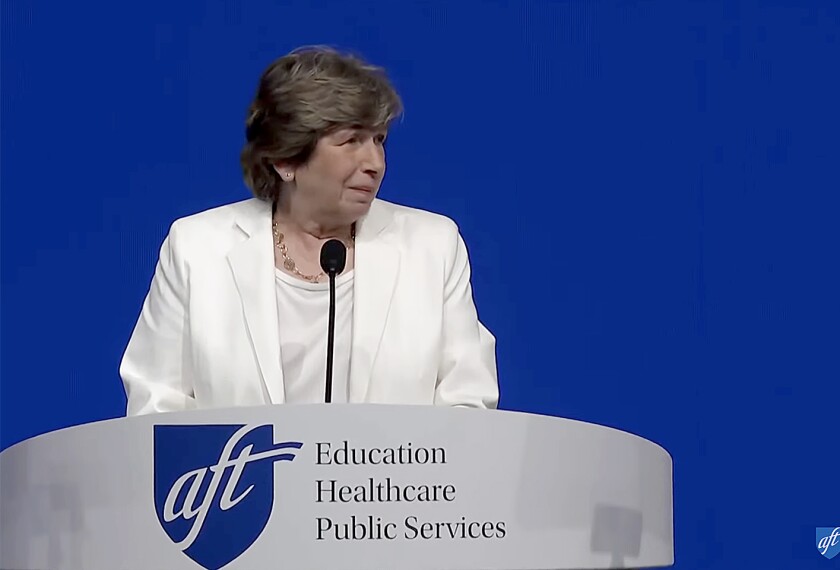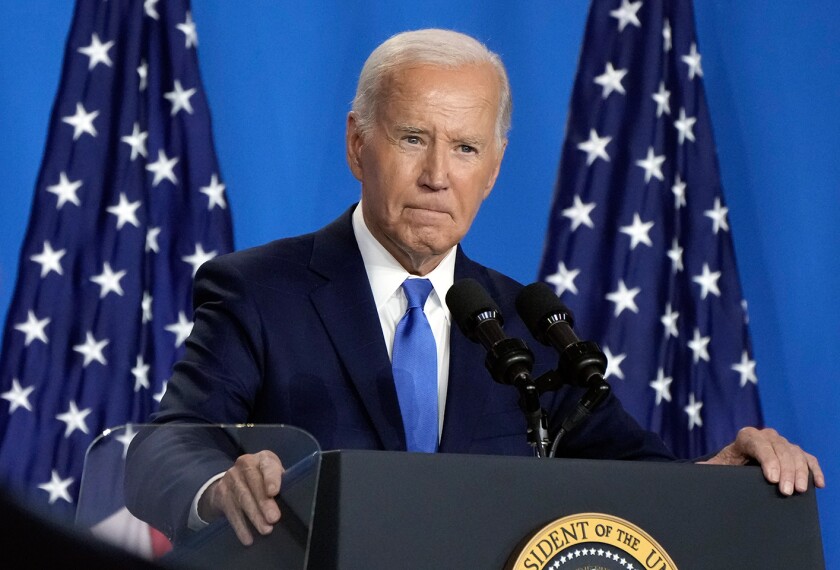Congress gave final approval last week to a measure that provides $235 million to schools educating students displaced by Hurricanes Katrina and Rita and extends the deadline for schools to decide how to spend the money.
President Bush on June 15 signed the legislation, which is part of a House-Senate conference report of a $94.5 billion emergency-spending bill for fiscal 2006 to finance the Iraq war, anti-terrorism measures, and Gulf Coast hurricane recovery. The House approved the measure on a 351-67 vote on June 13, and the Senate passed it 98-1 on June 15.
Congress had already provided $645 million in reimbursement funds for districts that took in evacuees under the Hurricane Education Recovery Act, signed by President Bush last December. Under that measure, the U.S. Department of Education was authorized to distribute up to $6,000 per general education student and $7,500 for each student in special education.
However, lawmakers initially approved only enough money to give schools about $4,000 per student. The supplemental-spending bill is intended to help close the gap. The extra funding must be spent on expenses incurred during the 2005-06 school year, such as salaries and classroom materials.
Capitol Hill staff members could not provide a firm estimate of how much more per-pupil aid the new allocation would provide, but they said they expected the final amount to be fairly close to the $6,000 per student initially authorized.
Sen. Kay Bailey Hutchison, R-Texas, whose home state initially took in more than 45,000 student evacuees, and other lawmakers had originally sought $300 million in extra hurricane aid for this school year and an additional $350 million for the 2006-07 school year.
The Senate approved those amounts last month, but the money was cut in conference negotiations, in part because House Republican leaders and President Bush did not want the bill’s cost to go beyond $94.5 billion.
“Because of the paring down they had to do in the bill, this was really all they were able to negotiate,” said Rodney E. Fisher, the federal liaison for the Texas Education Agency. “We were disappointed that we didn’t get the full amount, but we’re very grateful. This will go a long way.”
But other advocates for states were more critical.
“Congress did what they could to make helping states a priority,” said Joan E. Wodiska, the director of the education, early-childhood, and workforce committee of the National Governors Association. “But even with this most recent installment, it won’t be enough to cover the bills.”
Deadline Extension
The conference report also gives Secretary of Education Margaret Spellings the power to give schools more time to spend the hurricane money. Originally, schools were supposed to return any unspent funds to the Education Department by the end of the school year, defined as July 31.
But many school districts, particularly those in the areas hit hardest by the storms last August and September, said that deadline did not give them enough time to decide how to spend the aid, since many states and schools have not yet received all their money. Some districts are worried that the timeline might force them to return some of the federal funding, known as “impact aid,” despite overwhelming needs.
While local school officials were heartened by the prospect of additional aid, some said they would have liked more flexibility to use the money for next year.
“Adding some months will help us deal with the paperwork,” said Susan C. McLaurin, the director of federal programs for the 7,500-student Pascagoula, Miss., school district, which has about 630 displaced students. She said her district was expecting to end up with $2 million from the first appropriation of hurricane impact aid, not counting any funds from the supplemental measure.
But she said she would have liked “a little leeway to expend those funds,” since “those same children will be back in our classrooms next year.”





